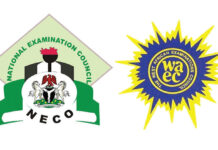In an effort to expand access to higher education, the Nigerian Education Loan Fund (NELFUND) rolled out a pilot program for student loans across the country. However, concerns have been raised over the apparent disparity in applications from the Northern and Southern regions of Nigeria.

The Managing Director of NELFUND, Akintunde Sawyerr, revealed that the data showed a higher number of applicants from the Northern region, reflecting a sense of scepticism in the Southern region. This revelation has sparked discussions about the underlying factors contributing to this regional divide in the application process.
The disparity in applications highlights the varying perceptions and levels of trust in the student loan scheme across different regions of the country. Mr. Sawyerr acknowledged the scepticism in the South, noting that it is crucial to address these concerns and build trust in the program to ensure equal access to educational opportunities for students nationwide.
While the specific statistics of the applications received have not been made available, it is known that over 100,000 students have applied for the loan so far, indicating a significant demand for financial assistance in pursuing higher education.
The application process, which was rolled out in two phases encompassing both federal and state-owned tertiary institutions, revealed a proactive approach from institutions in the Northern region in supporting and facilitating student applications. However, Mr. Sawyerr emphasized that the scepticism prevalent in the Southern region is expected to diminish once the Fund begins disbursements, indicating a need for transparent and efficient implementation to allay concerns.
This disparity in applications raises questions about the perceived accessibility and credibility of the loan scheme, particularly in the context of regional differences. It underscores the importance of addressing misconceptions and ensuring widespread awareness and understanding of the opportunities the student loan program presents for students across the country.
President Bola Tinubu’s flagship project in the education sector, the student loan scheme, was established through the Access to Higher Education Act, aimed at providing financial support to indigent or low-income students in tertiary institutions. The enactment of this law earlier this year led to the creation of NELFUND, which is responsible for managing all loan requests, disbursements, and recovery.
As the program moves forward with the disbursement phase, it is essential for NELFUND to prioritize transparency, accountability, and effective communication to address the existing scepticism and ensure that all eligible students, regardless of their geographic location, can benefit from the opportunities presented by the student loan scheme.
The disparity in student loan applications from the Northern and Southern regions of Nigeria underscores the need for comprehensive efforts to build trust and awareness in the loan scheme. It is imperative for NELFUND to address these regional differences and ensure equitable access to educational financing for all eligible students across the country.
The implementation of the student loan scheme is a critical step towards enhancing access to higher education, and it is vital to ensure that it effectively reaches and benefits students in all regions of Nigeria.




